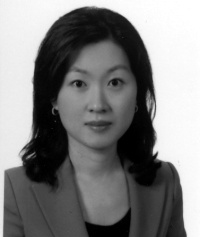
(International Studies)
Prominence of the Chinese intellectuals like Liu in the Chinese public realm is rather a recent phenomenon that emerged in the context of the economic reform since the 1980s. As the CCP persisted on the economic reform without fundamental political change, Chinese intellectuals began to demand for political reform and broader political participation. These intellectuals could resume their voices in the public through various publications in the context of commercialization of publishing industry and media and the flourishing of voluntary associations, despite the CCP’s efforts to restrain their activities.
Under the rule of Mao Zedong, intellectuals (zhishifenzi) gradually became deprived of their authority in the public realm because their collective identity gained the “class attributes” of petty bourgeois nature and was perceived as a threat to the socialist revolution led by the proletariat. As Mao believed that the socialist revolution can transform the subjectivities of intellectuals into the ones of truly socialist citizens, intellectuals had to go through the thought reform in the early 1950s. When this effort proved unsuccessful, the CCP launched various political campaigns such as the Anti-Rightist Campaign (1958-1959) and the Cultural Revolution (1966-1976), and purged intellectuals .
Despite this disjuncture, in the long imperial history, China had a Confucian ideal of “loyal dissenters” and “upright literati,” sharing social responsibility. In the early 20th century, when the modern intellectuals began to emerge as a distinctive and influential social group, they also took the crusade of enlightening the people for strengthening their newly established modern nation-state.
Thus, it is not so surprising to observe the intellectuals like Liu and others to reemerge in the Chinese public sphere.
Further, it is also not unforeseen that the Chinese government is alert and concerned about the growing influence of some intellectuals, who have a potential to challenge the legitimacy of the CCP and its monopoly. As of now, intellectuals are heatedly debating over the issue of China’s future. Leftist intellectuals, who became influential since the 1990s, are concerned about the globalization dominated by the “Western model” and advocated the sustenance of the socialist system with the “Chinese characteristics” based on cultural relativism. In contrast, liberal intellectuals, who used to be influential in the 1980s before the Tian’anmen Incident of 1989, believe in the universal values of market economy and democracy.
For Koreans as close neighbors of China, these debates over China’s future trajectory is not irrelevant and, thus, it will be important for Korean intellectuals, both the established professionals and students to be more engaged with the intellectual discourses which are already closely watched by the international community.

